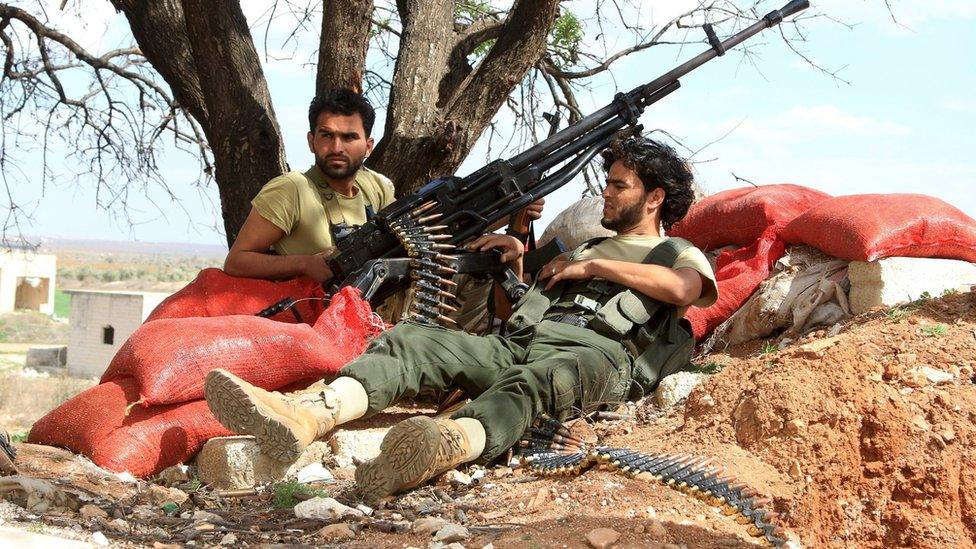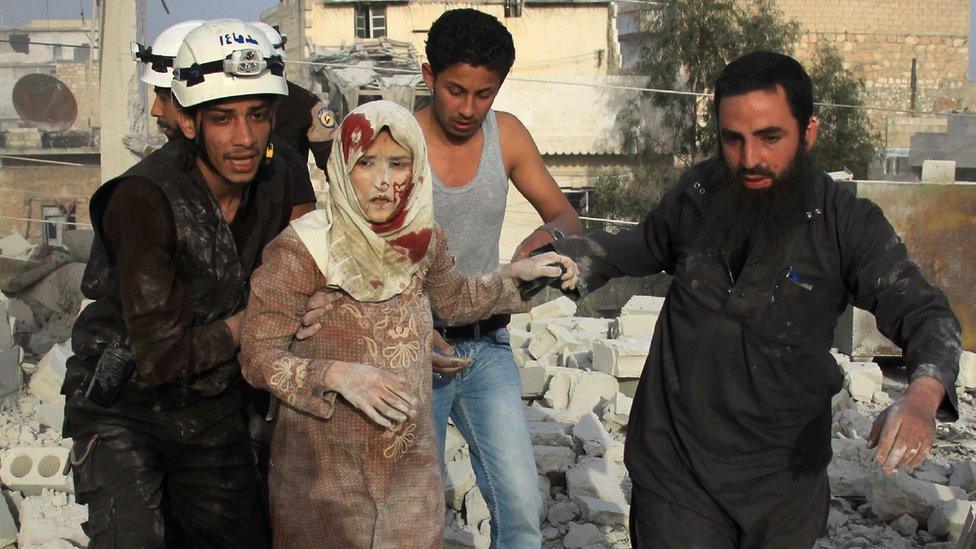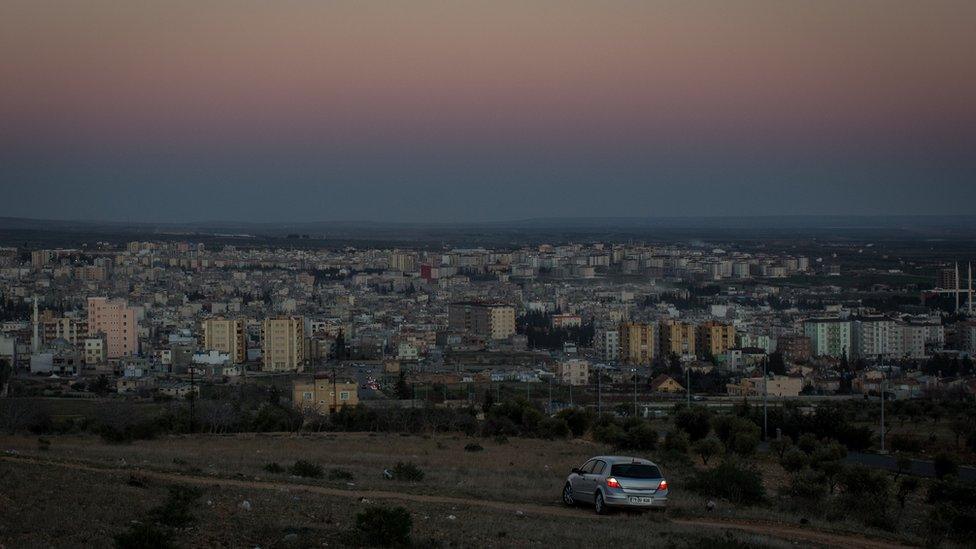Syria conflict: Rebels vow retaliatory attacks against government
- Published

The main rebel groups say they have set up a joint operations room to launch reprisals
Rebels say they have begun a new battle in north-western Syria in response to alleged truce violations by the army.
A statement announced the formation of a joint operations room following what it said was an increase in attacks on residential areas and displaced people.
Rebels were said to have subsequently launched attacks in the province of Latakia and in neighbouring Hama.
Meanwhile, the Syrian opposition delegation in Geneva said it intended to suspend formal peace talks.
The cessation of hostilities brokered by the US and Russia to make way for the talks has resulted in a significant reduction in violence since it took effect on 27 February.
But escalating fighting in recent days, particularly around the divided northern city of Aleppo, has left it on the verge of collapse.

Activists say government warplanes have continued to bomb rebel-held areas despite the truce
"After the increase of violations by regime forces that included targeting displaced people and continuous bombing of residential neighbourhoods, we declare the start of the battle in response," said the rebel statement issued on Monday morning.
The text was signed by the powerful Islamist groups Ahrar al-Sham and Jaysh al-Islam, as well as several groups that fight under the banner of the Free Syrian Army.
Peace talks 'suspended'
Later in the day, the Syrian opposition negotiating team, the High Negotiations Committee (HNC), said it "intended to postpone formal participation" in the peace talks, UN Special Envoy to Syria Staffan de Mistura said.

Analysis by Lyse Doucet, BBC Chief International Correspondent
Ever since Syria's truce came into force in late February, there have been repeated violations. But these new attacks are the most significant yet - rebel forces are attacking key front lines, and there have been repeated air strikes by the Syrian military.
This upsurge in fighting is putting new pressure on fragile peace talks. Opposition delegates are now discussing if the time has come to leave Geneva - they are reported to have received a letter from rebel forces on the ground, urging them to exert more pressure on the UN envoy Staffan de Mistura who has been mediating in these indirect negotiations between the warring sides.
The opposition is now accusing the UN of bias after Mr de Mistura floated a proposal to allow Syria's President Assad to remain in office, in a ceremonial role.
I've heard that idea in recent months from Russian and Iranian sources. But Syrian opposition groups have flatly rejected it - their Western backers are urging them not to walk out but it is becoming increasingly clear that these talks are not going anywhere.

The HNC wanted to express its disappointment at the deterioration in the humanitarian situation and in the cessation of hostilities, Mr de Mistura said.
But the envoy added that the HNC would remain in Geneva and informal discussions with the two sides would continue with a view to "taking stock" on Friday.
The US on Monday called on Russia to use its influence on the Syrian government to stop attacks that threatened the seven-week cessation of hostilities as well as the Geneva peace talks, a State Department official said.
Separately, President Barack Obama and his Russian counterpart Vladimir Putin held an "intense conversation" on Monday that covered Syria, White House spokesman Josh Earnest said.

The Turkish town of Kilis is 10km from the Syrian border
Meanwhile, four Syrians including three children in the Turkish town of Kilis were killed in rocket fire from Syrian territory controlled by co-called Islamic State (IS), the local governor's office said.
The Turkish military fired artillery in response, Hurriyet newspaper reported, external.
Rebels launch assaults
The Syrian Observatory for Human Rights reported that rebels had launched an assault on the positions of government forces and their allies in Latakia's northern countryside early on Monday and by midday had made advances.
The UK-based monitoring group also said rebels were close to taking over the town of Khirbat al-Naqus, in the strategically important Sahl al-Ghab plain in the north-west of Hama province.
A Syrian military source confirmed the attacks, according to the Reuters news agency.

Latakia is the heartland of President Bashar al-Assad's Alawite sect, and the Sahl al-Ghab lies just to the east of the coastal mountains where Mr Assad's ancestral village of Qardaha is located.
Meanwhile, the Syrian Observatory said four people were killed in heavy government air strikes in northern Homs province.
Twenty-two civilians were killed over the weekend in Aleppo, with at least 16 dying as a result of rebel shell- and sniper-fire and the six others dying in government air strikes, according to the group.
Militants from the group known as Islamic State (IS), which along with the rival jihadist group al-Nusra Front is excluded from the cessation of hostilities, have meanwhile seized more territory from rebel groups near the Turkish border north of Aleppo, forcing some 35,000 civilians to flee towards the opposition-held town of Azaz.
Medecins Sans Frontieres warned, external on Monday that the situation was now critical for more than 100,000 displaced people trapped around Azaz, with active fighting just 7km (four miles) away and the border closed for all but the most seriously ill Syrians.